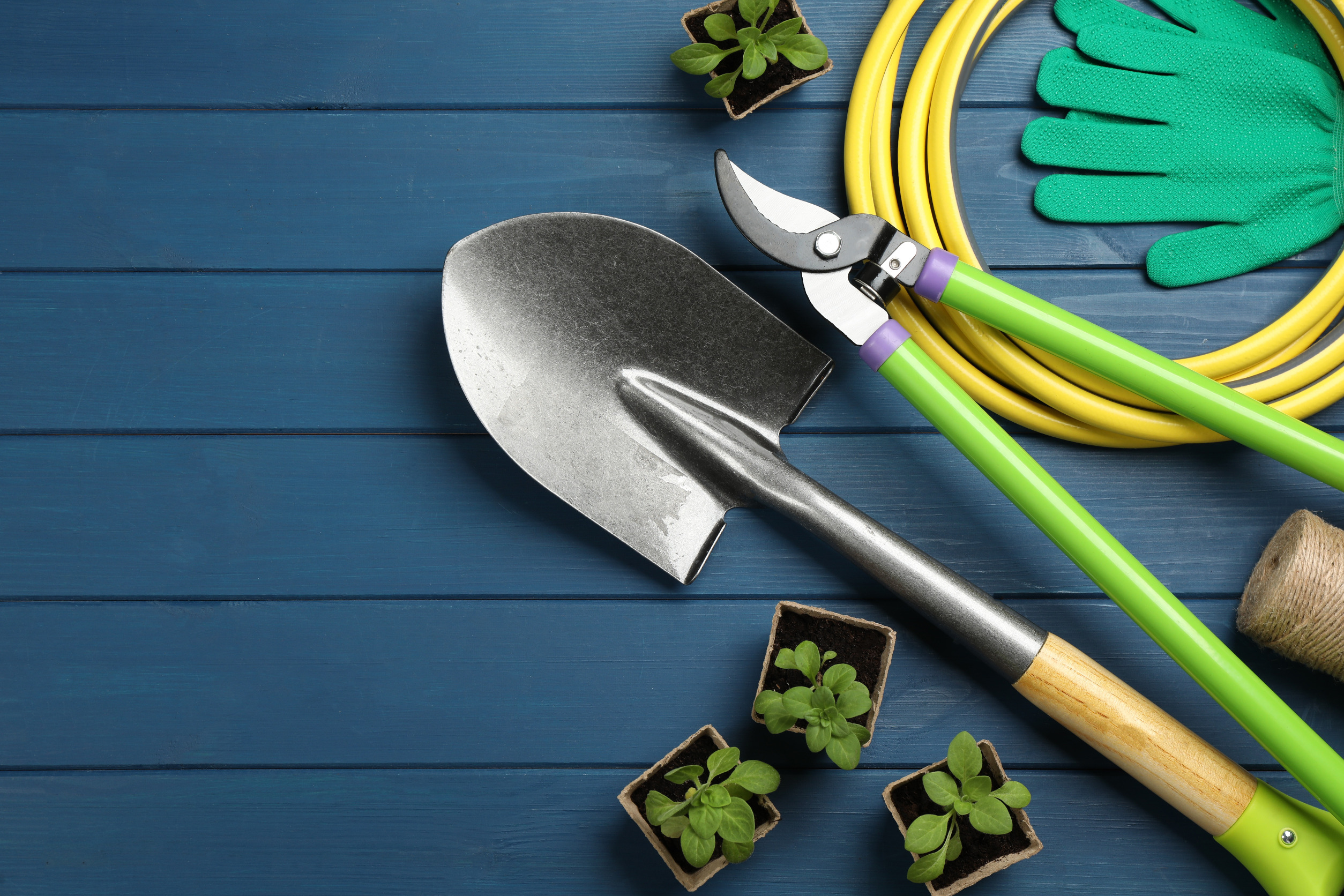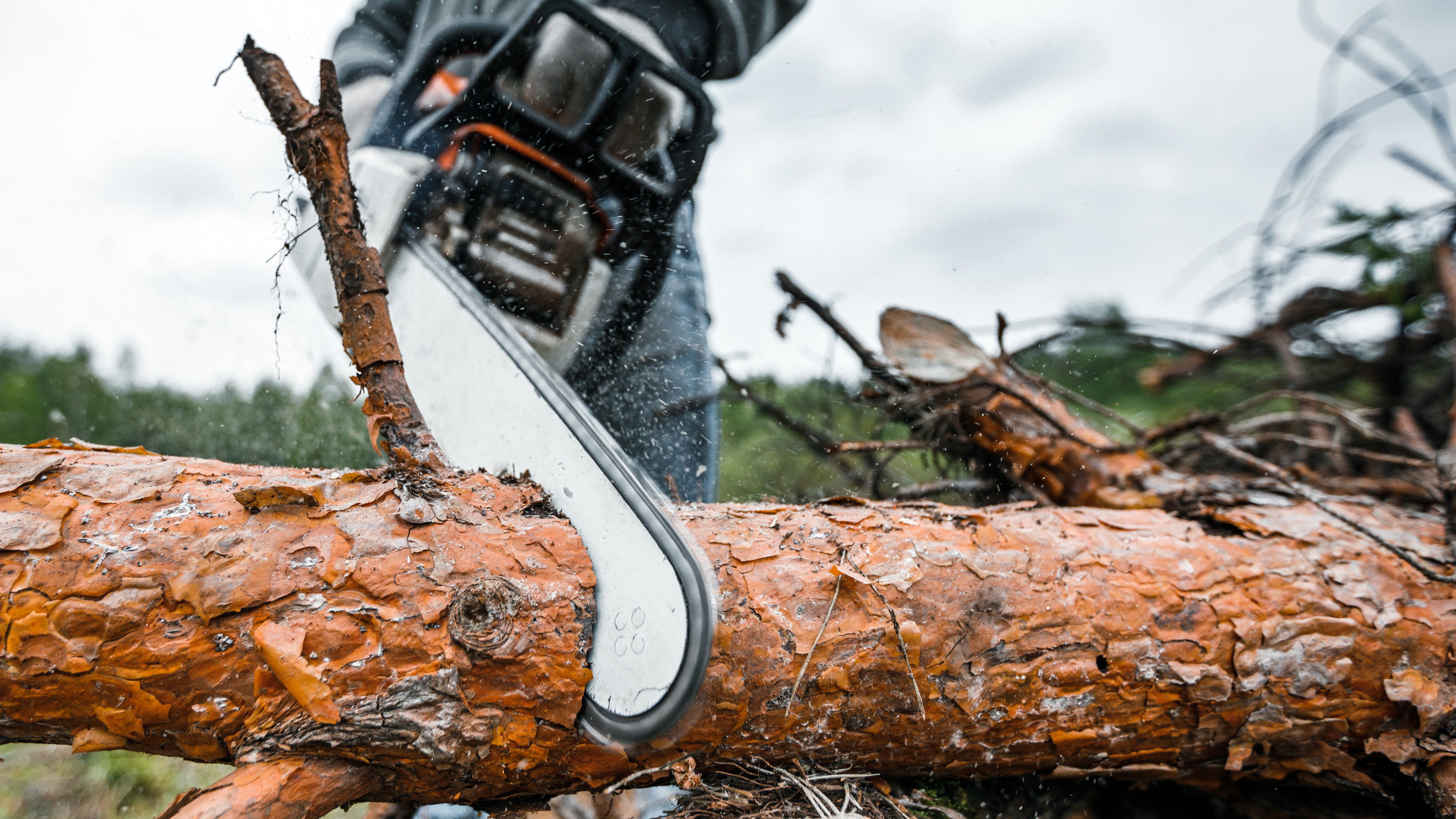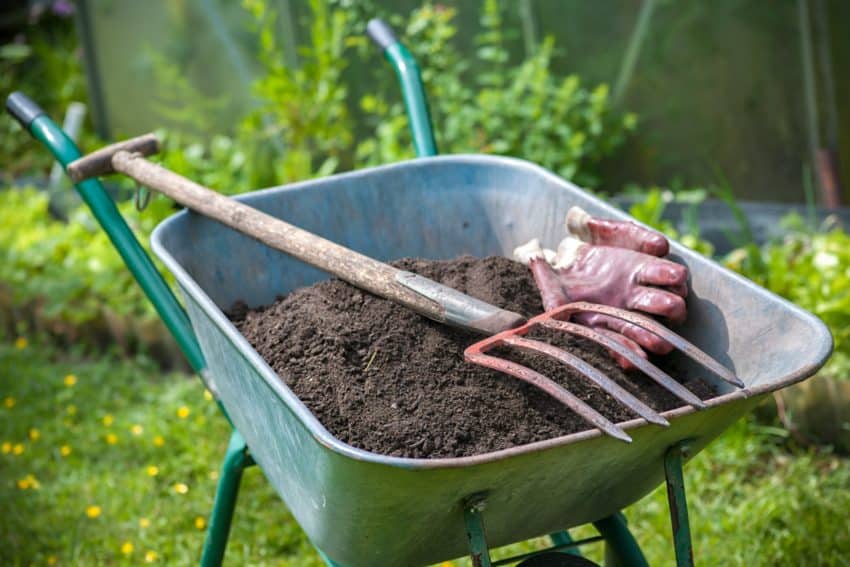Starting a landscaping business can be a lucrative venture, but it requires more than just a green thumb and a love for the outdoors. As with any business, having the right tools and equipment is essential for success. below, we’ll provide a comprehensive list of landscaping tools needed to start and run a landscaping business.
If you want to start from the beginning of your landscaping journey you can check out our “How To Start A Landscaping Business” page for an in-depth look!
As with any business, there are some tools that you absolutely must have in order to succeed and then there are tools that can help make things easier or faster. As we go through this list, I have ordered the tools for landscapers in a way that I believe will be from the most essential landscaping tools, down to some which may be added to your collection as time goes on.
The absolute must-have tools when starting your landscaping business
Landscape Truck
If you’re serious about starting your landscaping business you will have to get a truck of some kind. Whether it is a pickup truck or a small dump truck, arguably the truck is one of the most vital tools and equipment you can have.
The price of new vehicles is higher than ever and so I don’t suggest you start with a brand new one. A used truck will work just fine and you won’t feel as bad when you get that first scratch and dent that will happen sooner than later. The important thing is to get a good reliable vehicle to help you land your first job.
Landscape Trailer
In the beginning, you may not need a trailer but I can tell you, it will make life a lot easier once you do get one. A trailer is great for carrying equipment and other tools that may not fit on the truck. It can carry landscape materials that are used every day in your business such as gravel, sand, soil, and sod.
Most landscapers use one of two styles of trailers. The first style would be a utility trailer. These trailers are open to the elements and are easy to access from all sides. They can be customized to allow you the best configuration to place equipment and tools off the deck and out of the way of landscape materials.
These trailers work great for the easy loading and unloading of bulk items like soil and stone. There are also Dump trailers that can quickly unload that material for you.
Another style of trailer would be the closed-in or covered-style utility trailer. These are generally covered with aluminum or fiberglass and provide far better security for your items within it when compared to the other trailer.
These trailers are great for landscapers who don’t necessarily have the shop or garage space to store their tools overnight.
A covered trailer is also more difficult to load and unload bulk materials because there are generally only one or two access points to get into it.
Hand Tools Every Landscaper Needs

These are the essential landscaping tools you need if you are serious about getting into the business.
*Pro-Tip – When starting out, check out all the garage sales and estate sales in your area for the tools and equipment listed below. They can be a gold mine of tools for landscaping that will cost far less than new tools and in many cases may be of better quality because “they don’t make ’em like they used to”!
In many cases, people have great professional landscaping tools in there homes and are ofter eager to sell them after realizing that they don’t really need them.
I will compile a list of the best landscaping tools at the end of this article that you can use over time to check off as you acquire items.
Shovel
There are several different types of shovels you need and you will need several of each one for your business. The round-mouth shovel is a staple in the landscape, construction, and lawn care business. It does most of the heavy lifting so invest in some decent ones. The garden spade is squared off at the bottom and is great for shaving off turf grass, edging off gardens, and cutting through annoying roots when digging holes. This will be one of your go-to hand tools in your business. And finally a grain scoop-style shovel. These are great for when you need to unload a lot of “lighter” material like screened topsoil, mulch, or small gravel. These shovels are light, easy to use, and can move a lot of material in a relatively short time.
Garden Rake
The garden or Landscape rake has a straight line of a few dozen hardened teeth that can easily spread gravel and soil around to help with leveling or taking away materials from specific areas. These rakes can come in various sizes from small, which can be used in tight areas to very large, which are generally used for the final leveling of an area in preparation for sod or other finished products. These rakes are often referred to as a leveling rakes.
Leaf Rake
This rake is great for cleaning up light debris when the job is done and for leveling off light materials like mulch or fine gravel in garden spaces. This is a common rake you can use in landscaping, lawn care, at home in general
Wheelbarrow
Another item on the essential tools for landscapers list, wheelbarrows are the heavy lifters when it comes to moving materials from one location to another on-site and is used on virtually every construction and landscape site. Invest in a decent one, preferably made of metal with a good pneumatic tire and not a solid rubber or plastic one.
Garden Cart
A garden cart is used for transporting landscaping hand tools, plants, and materials around the landscape. It’s an essential tool for larger landscaping jobs. When I have chosen a garden cart in the past, I will always choose one with a sturdy frame, durable wheels, and a large carrying capacity so I know it will stand the test of time.
Trowel
A hand trowel is used for planting and transplanting small plants and flowers. It’s a great tool to use when there are a lot of flowering plants like annuals that only need a shallow hole to be dug and many holes in a short time. It is easier to a trowel in gardens that have recently been turned over with a garden fork or tiller.
Garden Fork
A garden fork is one of many landscaping tools used for breaking up soil and preparing a garden bed for planting. The fork’s long tines can penetrate deep into the soil, loosening it and making it easier to work with. This tool works great in the garden as opposed to using a regular shovel or spade because it easily penetrates deeper into the hard soil and turns it over easily.
Spreader
Although you might not need one very often, they are a great tool when you do need it. A spreader is used to evenly distribute fertilizer, seed, and other materials across the lawn and garden. It’s an essential tool for maintaining the health and appearance of the landscape. Again, you want to look for a spreader that is durable and has adjustable settings to handle different types of materials. Like the wheelbarrow, it is best to get pneumatic wheels on this if possible so it can handle the rougher terrain compared to the small plastic wheels that come with residential-style units and not high-quality equipment.
Garden Hose
A garden hose is used for watering plants, trees, and shrubs. It’s an essential tool for maintaining a healthy and attractive landscape. Choose a garden hose with a durable, kink-resistant design and adjustable nozzle to handle different watering tasks.
Sprinkler
A sprinkler is used for watering large areas of lawn and garden. It’s an essential tool for maintaining a healthy and attractive landscape. Look for a sprinkler with adjustable spray patterns and a durable, rust-resistant design to handle daily use.
Pole Saw
A pole saw is a long-handled chainsaw used for trimming high branches and trees. It’s an essential tool for maintaining taller trees and shrubs. Choose a pole saw with a lightweight, telescoping design and a powerful motor to handle tough jobs.
Soil Test Kit
A soil test kit is used to test the nutrient levels and pH balance of the soil. It’s an essential tool for determining the specific fertilizer needs of the landscape. Choose a soil test kit with accurate readings and easy-to-understand instructions.
Pruning Saw
A pruning saw is used for cutting thicker branches and limbs on trees and shrubs. It’s an essential tool for maintaining the health and appearance of larger plants. Look for a pruning saw with a sharp, durable blade and a comfortable handle.
Garden Gloves
Garden gloves are used to protect hands from dirt, thorns, and other hazards while working in the landscape. They’re an essential tool for maintaining the health and appearance of hands. Choose garden gloves made from durable, breathable materials that fit comfortably.
Check out our “How to start a Landscaping Business” page to learn more about all the steps involved in starting your own landscaping business.
Power landscaping tools needed to run a landscaping business

When choosing landscaping equipment you will have to add some power tools to yor collection.
Chainsaw
A chainsaw is used for cutting down trees, trimming branches, and cutting firewood. It’s an essential tool for larger landscaping jobs. Look for a chainsaw with a powerful engine, anti-vibration features, and safety features such as a chain brake and kickback guard.
Make sure to wear your ear protection with this one!
Blower
A blower is used to clear debris such as leaves and grass clippings from sidewalks, driveways, and lawns. It’s an essential tool for keeping a tidy landscape. Look for a blower with a powerful motor and variable speed settings to handle different types of debris.
Hedge Trimmer
A hedge trimmer is used to trim and shape hedges and bushes. It’s an essential tool for maintaining a neat and tidy landscape. Look for a hedge trimmer with a powerful motor and adjustable blade length to handle different types of hedges.
Pressure Washer
Most people are familiar with what a pressure washer is as it is a machine that uses high-pressure water to clean surfaces. It works by pumping water at high pressure through a hose and a wand, which has a nozzle that can be adjusted to produce a concentrated jet of water.
Pressure washers are a great add-on to your landscaping tools as they can be used to help clean and restore older walkways, pools, driveways, and other hard surfaces. Many landscapers add power washing when repairing fences and decks to help give the whole project a fresh look.
Be cautious with power washers though. without enough experience, it is easy to cause more expensive damage that will cost you if are not careful.
Tiller
A garden tiller, also known as a rototiller, is a gas-powered tool that is used to prepare the soil for planting. It works by breaking up and loosening the soil, making it easier to plant seeds or transplant seedlings.
Going Green In The Landscaping Business.
As the world is rapidly changing, with innovations coming fast everywhere you look.
This is true in the landscape industry as well. There are new battery-operated tools of all kinds including chainsaws, trimmers, blowers, rollers, and even wheelbarrows. With improvements made in weight and battery life, these tools will become more common in the near future.
Technology in your landscaping business
Just like battery and other green fuel technology is changing the tools we use in the field, technology is also changing the way we do things when it comes to communicating with customers, invoicing and receiving payments, and planning out our materials lists for each job.
Safety Equipment
Safety equipment such as safety glasses, ear protection, steel-toed work boots, and a hard hat are essential for protecting against hazards while working in your landscaping business. Many of these items may even be required by law in your area so make sure to check with local bylaws Choose safety equipment that fits properly and meets safety standards.
In conclusion, starting and running a successful landscaping business requires the right tools and equipment. Whether you’re mowing lawns, pruning trees, or planting flowers, having the right tools can make all the difference. Invest in high-quality tools that are durable, efficient, and safe to ensure the success of your landscaping business.
Make sure to check out all our other resources for starting a landscaping business.

